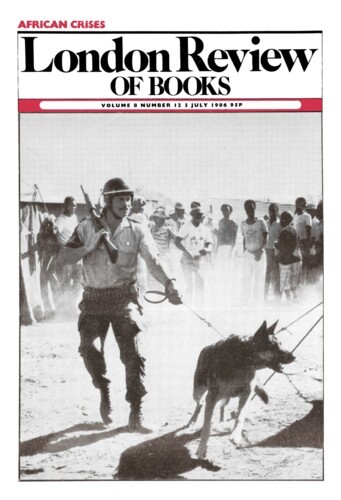for Zafrullah
In late May 1985, a tidal bore struck the south-eastern coast of Bangladesh causing widespread devastation and loss of life.
I
Either side of the bund nobody slept
That night. It wasn’t the siren warning
(The third time this year), but the wind’s cling
And the way frisky things stayed wrapped
About uprights, legs or gateposts, till swept
By a sidling gust up and away, a strange falling
Toward the sky. Later, the wind was king
And all things frisky; roofs like sheets danced rapt
To his bidding, the living bowed over earth lapped
By early tongues of the tide gathering
At sea. Freak moon joined freak wind to fling
Water on water, a phantom mountain capped
With snowy froth. Rearing, Jaganath leapt
For the bund across the new lands levelling
All. But of this we on the safe side know nothing,
Their deaths, like their America, unmapped.
II
On the whole, earth is a slow process,
An accretion of slight forces, singly trivial;
Eruptions cool and harden through ages,
Frost breaks, water whittles,
Change without becoming, always provisional.
Earth’s age is reckoned in years.
Medieval man taught a few thousand, assumed
Human need conjured her from the mind of God.
Science adds noughts, makes us modest;
We talk of geological and human time.
Contemplating the scooping of a nook in a cave
Resembles the contemplation of eternity.
But in the Bay of Bengal earth, whale-like,
Humps from the sea, barely tumescent, dimly defined,
Grows green in a matter of seasons
And extends her ambiguous welcome
To herds, ploughs, homesteads, our kind of life.
III
Wind blew salt and sun,
Blackened our skin, carved wrinkles;
But its steady tug busied us
Tucking, fixing, fetching, weighing down,
Kept our eyes to the ground
When looking up, there was nothing
For them to alight on in the vast
Flowing with the sky.
No height except our own,
No corner, edge, outline,
Nothing but blurred gradations
Of low and lower still,
Land-green, water-brown, sky-grey,
Amphibious, indeterminate;
Not yet land
But the raw material only.
That was before we came.
We, eyes level and garments kilted,
Dug soil from the tide-bound,
Basket by basketful raised
Islands of constant dryness.
We drove home stakes to corner
Our houses, squared bamboo,
Angled our roofs with precision.
We planted, the fast-growing first,
And rejoiced when the banana
Stood taller than we.
In time, palms will rise,
Signs of us against the sky.
The vast no longer clings so closely,
But distant packs of pie dogs
Weep nightly for the moon.
IV
The bore left such flotsam
That for days only children
Ventured across the bund, children
Grieving for their sleep. They saw,
Where the green land had donned
Such a sudden dun blossoming,
Among clumps of fleeces, stilled
But for the ruffling of the wind,
The grievous sight
Of their own kind sprawled in death.
And having seen one, their eyes,
Grown in the way of it, picked out more.
They wandered on, calling to each other
The tally, as children elsewhere
May call through summer woods
Their troves of berries and mushrooms,
Voices stranged by space.
For the rest, the dead were alone
Under the fierce sun wheeling in the sky.
Six-hourly, the tide’s flow
Lifted them slowly, cradled them softly,
Six-hourly, they drifted aground with the ebb.
V
It started to rain when they came,
Through mud and shallows, at the end
Of a long day of burying to bury her
Who had lain there too long.
Driving rain cut them adrift in a world
Of grey, stung their burnt skin as they
Stood shivering, sounded a plangent drum
On the bloated belly of her cow.
Her cow? Or someone else’s? How far
Had she travelled the Bay, dipping and bobbing,
Before fetching up on this knoll of grass?
Was it she bore the children they buried?
From the matted tangle still holding her skull
And her single plastic bracelet they knew her
A woman, and poor. The manner of her death
Spoke her courage. Perhaps it was enough.
They cut a shallow grave, for the earth
Was heavy and their arms ached.
Sodden straw washed up against her hid
The white flux heaving between her legs.
Lifting her with care, she was so friable,
They found her breasts grown earthlike,
Scuttling with life as the underside
Of a stone slab levered from dankness.
They held their breath for the sick-sweet
Smell of her passing as she slid awkwardly
Into her grave, and crumbled earth,
Murmuring prayers for her immortal soul.
VI
Envoi
A small mirror in
The swath of debris
Where she had been,
Framed in embroidery
Of coloured thread
From an old sari.
A hand, a head,
An eye for beauty
Made it.
Send Letters To:
The Editor
London Review of Books,
28 Little Russell Street
London, WC1A 2HN
letters@lrb.co.uk
Please include name, address, and a telephone number.

